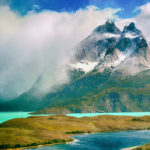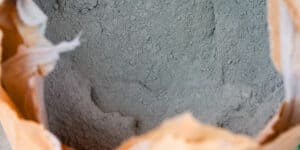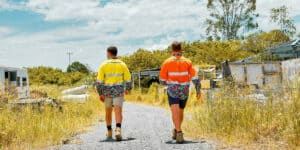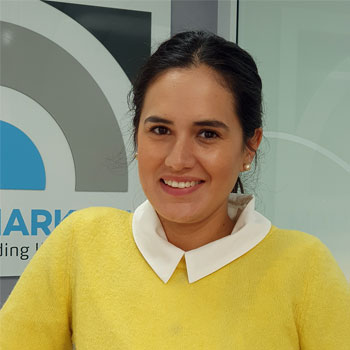Javi is about to speak at the Chile-New Zealand ‘Winds of Change’ symposium. What’s it all about? What does it hope to achieve? How is emerging talent seeking to make climate change action more accessible? And Shane says glaciers are ‘cool’, which is doubtless true.
Winds of Change Symposium

Invisible Strength
Winds of Change Symposium
/
RSS Feed
Winds of Change Symposium
Winds of Change network and 2020 presentations latamcape.org.nz/programmes/education-engagement/winds-of-change-network
LACAPE https://latamcape.org.nz/programmes/education-engagement/winds-of-change-network/
University of Otago otago.ac.nz
Photo of glacial lakes in Chile’s Torres del Paine National Park by Olga Stalska on Unsplash
View the Transcript
SHANE: Hi, and welcome everyone! It’s great to have you listening to MARKHAM’s Invisible Strength podcast series. I’m Shane, and I’m part of the marketing team here at the Napier office. I’m joined here today by Javi Otero. Javi is a key part of our project management team here at MARKHAM.
Today we’re going to be talking about the Winds of Change Symposium. But before we get into it, can you let everyone know a little bit about yourself, Javi?
JAVI: Hi Shane, thank you for having me. Yes, I’m from Chile originally, but I’ve been in New Zealand for the last six years. Back home I studied business, I did a degree in business; and then I took a bit of time off. I just travelled the world, and then I went back to study again. I did a post-grad in applied management. Also, I’m a part-time student in Te Reo Maori.
SHANE: Awesome! So Javi, you shared on LinkedIn that you’re involved in the Winds of Change Symposium this year. Do you want to give us a bit of an overview of what that’s all about?
JAVI: Yes, so I’ve applied for a programme, and this is the important final presentation about projects that we’ve been working on for the last six months. So this programme is organized by LACAPE, the Latin America Centre of Asia-Pacific Excellence, and the University of Otago. So gathering people, a group from New Zealand and a group from Chile, just to work around climate change and how it’s impacting both countries. We have the same sort of, like, level of what can we do about it, to reduce the impact of climate change. So different interests, different breakdowns of people, scientists, geologists, and then people like me, we don’t really know much about the science, but we’re very interested and we can also be a part of the change. So it’s been great to share time with people that we’d have the same sort of worry about climate change, but with different backgrounds, so it’s been incredible.
SHANE: Yes, yes, that sounds really interesting and that’s cool that it’s not just science. People say ‘values’ but it’s not …
JAVI: And I think that’s the key. Maybe the last 20, 30 years that we had heard about climate change. But it doesn’t go to the general public level, just all stays at the scientific level and like…
SHANE: Very academic and not “real world”?
JAVI: Exactly, so people don’t really know what can they do about it. Like how they can do just little things. Maybe like just do some recycling or reducing the waste, or repairing instead of just going and buying something new.
SHANE: Yes, that resonates with me, especially the right to repair.
JAVI: Exactly. We generate so much waste, but we don’t really think about what’s going to happen to that piece of equipment or whatever we buy, when we put it into the rubbish bin. Where’s it going to end? Is it going to end up in landfills, or in the ocean? We don’t really think about it, we just … I don’t know, go to the big store, and buy, and replace it.
SHANE: Yes, and what’s going to happen to that in five years, ten years, fifteen years? Is it going to break down or is it going to be there? Yes, that’s really cool. And it’s especially interesting here at MARKHAM with our focus on the environment. And we’re really interested in what’s happening with emerging talent from universities, and we’re obviously particularly supportive when someone from our own team is involved.
So what’s the main idea? What is the Symposium aiming to achieve?
JAVI: So just to talk about different courses of climate change. And what can we do about it to either educate people; or go to the government and say, Hey we need a change, can we address this problem? It’s just, I think, exposing causes of climate change, and we, from our end – what can we do about it? So just making it, I think, just public and accessible to people.
SHANE: Yes, that’s probably the right word, ‘accessible’. And bringing it forward.
JAVI: And also it’s been a great opportunity for me, because, since day one when I got accepted in this programme, MARKHAM has been very supportive and now I’m part of the sustainability within the company. So it’s been a great opportunity for me to be part of this programme and also put it into practice, in MARKHAM, what I’ve learned.
SHANE: Yes, and I’ve been watching that over time and I think it’s really cool and especially… it’s all about those small improvements over time that add up, those small changes, that actually make a big difference.
JAVI: And also – having conversations with team members. So maybe not everyone… Yes, we all know that we need to recycle. But do we really need to recycle – that’s the main goal? Or maybe we should start reducing. And then what we can not reduce, we recycle.
SHANE: Yes.
JAVI: So it’s cool that people are so keen to learn about these little changes. Like, climate change, sometimes ‘climate change’ sounds so overwhelming. Yes, it’s bad, but we need…
SHANE: Yes, it seems like a too high-level problem and it’s those big things we need to change; but in reality, if we all do our small little bit every day …
JAVI: Exactly!
SHANE: … it’s that compounding factor.
There’s a book that I want to read, it’s sort of related to this book, it’s called “Bird by Bird” and it’s about a father who’s talking to his son about writing, I think it was, an essay, something like that. And the son was talking about, it’s too hard, it’s this big thing. And he said, just look at it … talking about birds, it’s a funny reference! But he said, look at it bird by bird, do it one bird at a time. And by the end of it, you won’t even notice that you have written this whole essay, just in these tiny bite-sized chunks.
It’s kind of the same thing with climate change and recycling. But I like how you were talking about the reduction; like, do we need this product or service? Or can we reduce that before we get to the recycling stage? Because recycling is almost the last step in the process.
JAVI: Yes. And a lot of the effort is put into the end customer; which, it’s us, we need to take a bag if we go and do groceries; or have a reusable cup instead of having a takeaway cup, which is great. We all should do those little things. But also, what’s happening with the company producing those products? They should be responsible for the waste and not just put the effort, all the responsibility into the end customer.
SHANE: Yes, love it! And pulling it back to the Symposium, what is the topic that you are going to be speaking to?
JAVI: Well, we picked glaciers.
SHANE: Cool.
JAVI: So the title of our project is “Glacier Tourism, In a Warming World”. So it’s me and three other people, two people from Chile and one in New Zealand. They’re all geologists, and one is an expert in glaciers. So we decided that he knew a lot about glaciers, so why not just go down that path?
And it’s been so interesting because we started the project thinking, glacier tourism impact – it has a big impact on glaciers, like, glacial retreat, glaciers melting. But we got in touch with four different people, ‘the experts’, we called them. James Renwick, Heather Purdie, Sam Parsons, and an organization from Chile [Fundación Glaciares Chilenos]. And we ended up realising that the glacial retreat, it’s caused by carbon emissions or big things like that. Not just people going and walking on a glacier.
SHANE: Sure.
JAVI: So it’s been interesting to just, from what we think was a big problem, it is a problem, but the cause wasn’t the one we thought it was.
SHANE: OK. Could you give us a spoiler maybe? Maybe some of the points that would be covered?
JAVI: So we are sharing some words from the experts which is the message that we’re trying to just get across to the general public.
We also created a product, it’s a website, so this is the ‘why’, that we are trying to make information accessible to people. Not just that you’ve got to have a paper, a research paper.
SHANE: Which is not very accessible …
JAVI: No, and it’s not really, like, friendly to people that are not into the scientific field. Yes, so we’re just trying to make it as easy as possible, as accessible as possible, for whoever is going to, oh, a glacier maybe, or doing some tourism, or maybe just interested in climate change. They can just go online and have a look.
SHANE: Sounds cool! And so is the Symposium a one-off event, or is it going to be a yearly event, or …?
JAVI: So the programme started last year. And this is its second year, and I think it’s going to keep going. So that’s a cool thing, more people involved, more people trying to do things.
SHANE: Awesome! Will people be able to watch it online?
JAVI: Yes, so it’s going to be online, and just stored. I think it will be on the University of Otago website.
SHANE: OK, let me look into that. And so this podcast will obviously come out after you’ve spoken. But if people do want to have a listen, have a watch or however it’s delivered, are they able to look at a YouTube recording or something like that?
JAVI: Yes, so the video gets stored on LACAPE’s website, and also on the University of Otago website.
SHANE: Cool, OK. And we can put those details in the show notes, so people can click through.
OK, awesome! Thanks so much, Javi, it’s been a really interesting session. And to our listeners, if you want to learn more about MARKHAM, you can out our website which is www.markhamglobal.com
Be free to have a look around, and you can reach out to us via the contact form, or our chatbot Percy! And remember to keep listening for our next Invisible Strength episode! Catch you later!
JAVI: Thanks!
Want to Contribute?
Feedback on our podcasts? Suggestions for future topics? Looking for more information on topics we’ve discussed? Send us a message – we’ll be in touch within a day or two.
More about MARKHAM
MARKHAM are dedicated to providing innovations for concrete and construction. Focusing on concrete waterproofing solutions, penetrating concrete sealers and durability treatments for concrete.
Podcast Categories
Menu
Latest Episodes

The Electric Vehicle of Cement Making
We’ve talked about this in other places, but cement manufacturing is a real problem child

Eco Choice – People and Planet Focus
Environmental Choice New Zealand has had a makeover – now it’s called Eco Choice Aotearoa.

Starting Good Conversations
Have you seen those colourful Trademutt shirts on site? They’re a conversation starter! This is
invisible strength podcast
The whole MARKHAM team is pleased to present you with our podcast series, INVISIBLE STRENGTH. In this series of interviews, we’ll walk through the science and challenges of concrete durability, what goes wrong in the field – and the advanced methods available to restore and enhance service life to concrete construction.
INVISIBLE STRENGTH reflects a number of factors in concrete construction and durability. When things go wrong, the evidence can become very visible indeed. However, when all is going well, there’s nothing particular to be seen!
MARKHAM’s concrete treatments, too, are invisible once completed – and the result is the long internal, invisible durability of the concrete.
So join us as we explore the unseen world inside concrete – why it matters, and how it can be protected!
Stay Connected
Listen and subscribe to us on your favourite podcast platform, we're always adding new episodes!
Newsletter
Sign up for email updates on the latest collections, campaigns and videos.

